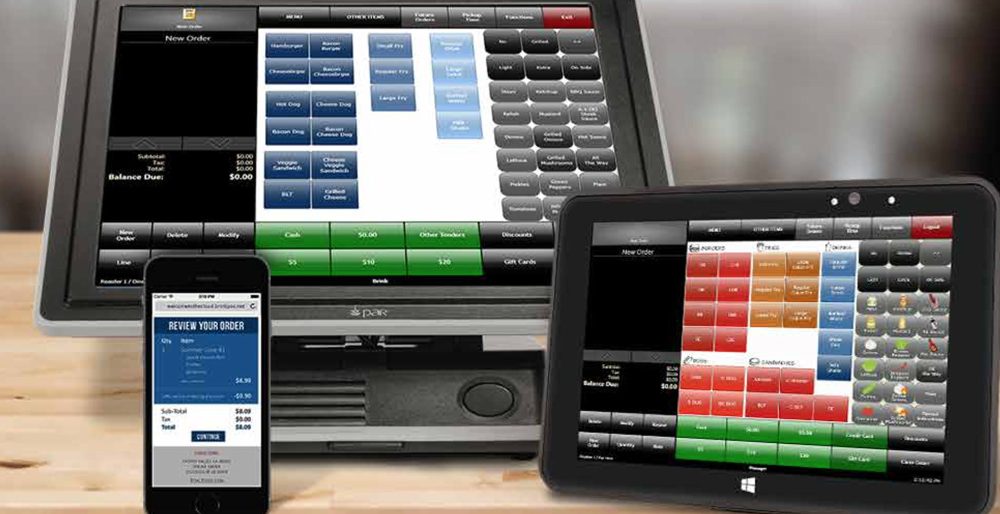When it comes to running a food and beverage business, there are a lot of moving parts. From keeping track of inventory to managing employee schedules, there’s a lot to think about on a day-to-day basis. But one of the most important aspects of any food and beverage business is the point of sale (POS) system.
A POS system can make or break your business, so it’s important to choose one that’s right for you. To help you make the best decision, we’ve put together a list of 10 pros and cons of popular f&b POS systems.
PROS:
Increased Efficiency
A f&b POS system can help streamline your ordering and payments process, making it faster and easier for both your staff and customers.
Improved Customer Service
With a POS system, your staff will have all the information they need right at their fingertips, meaning they can answer customer questions more quickly and accurately. Additionally, features like order tracking and gift card integration can help take your customer service to the next level.
Reduced Costs
A POS system can help you save money in a number of ways, from reducing paper waste to eliminating the need for manual data entry. Additionally, many POS systems come with built-in loyalty programs that can help increase customer retention and repeat business.
Increased Sales
A POS system can help boost your sales in a number of ways, from increasing efficiency to offering targeted promotions. Additionally, features like gift card integration can encourage customers to spend more at your business.
Improved Inventory Management
A POS system can help you keep track of your inventory levels, so you always know what’s in stock and can avoid over-ordering or running out of products.
Detailed Reporting
A POS system can provide you with detailed reports on your sales, inventory, and customers, so you can make better-informed business decisions.
Flexibility and Scalability
A POS system can grow with your business, so it’s a good investment for businesses that are planning to expand in the future. Additionally, many POS systems offer a variety of features and integrations that can be customised to meet your specific business needs.
Improved Security
A POS system can help reduce the risk of fraud and theft by keeping track of all sales transactions and customer information. Additionally, many POS systems come with built-in security features like encryption and password protection.
Mobile Access
With a cloud-based POS system, you and your staff can access your data from anywhere with an internet connection. This can be helpful if you have multiple locations or need to make changes while away from the office.
Peace of Mind
A POS system can give you peace of mind knowing that your sales and customer data is safely stored and backed up. Additionally, many POS providers offer 24/7 support in case you ever have any questions or problems.
CONS:
Upfront Costs
The initial cost of purchasing a POS system can be a barrier for some businesses, especially small businesses. However, it’s important to keep in mind that a POS system can save you money in the long run by increasing efficiency and reducing costs.
Learning Curve
A POS system can be complex, and there is usually a learning curve associated with using one. However, most POS providers offer training and support to help you and your staff get up to speed.
Software Updates
In order to keep your POS system up-to-date, you’ll need to regularly install software updates. These updates can be time-consuming and disruptive to your business, so it’s important to plan for them in advance.
Hardware Issues
If any of the hardware components of your POS system breaks down, it can be difficult and expensive to repair or replace. This is why it’s important to choose a quality POS system with reliable hardware.
Dependence on Technology
A POS system is useless without an internet connection, so if your power or internet goes out, you won’t be able to process sales. This can be a major inconvenience for businesses that rely on their POS system for day-to-day operations.
Data Security Risks
Because POS systems store sensitive customer and financial data, they are at risk for cyberattacks. This is why it’s important to choose a POS system with robust security features, and to regularly back up your data.
Limited Functionality
SomePOS systems only offer basic features and lack the flexibility to meet the needs of growing businesses. So if you’re planning on expanding your business in the future, it’s important to choose a POS system that can grow with you.
Vendor Lock-in
Some POS providers use proprietary software that only works with their own hardware. This can make it difficult and expensive to switch to a different POS provider if you’re not satisfied with the service.
Complex Pricing Plans
Some POS providers offer a variety of pricing plans that can be confusing and hard to compare. Make sure you understand the features and costs associated with each plan before committing to one.
Cancellation Fees
Some POS providers charge high cancellation fees if you decide to switch to a different system. Be sure to read the fine print of your contract before signing up for a POS system to avoid any surprise fees.


